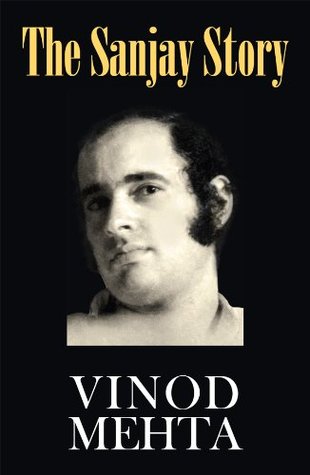Kindle Notes & Highlights
by
Vinod Mehta
Read between
November 7 - November 8, 2017
On 21 March, when the Emergency was lifted, the Rajdhani arrived four hours late, L.I.C. workers in Kanpur came out on their usual lunch time morcha, a fist fight broke out in the dormant Press Club of Delhi, two family planning vans were burned in Calcutta, dancing school ads reappeared in the evening papers of Bombay, the price of smuggled scotch came down by 10 rupees. There was no mistaking it. Normalcy had returned to the country.
‘You must not say such a thing, even think of it. This daughter of Jawahar, for all you know, may prove better than a thousand sons.’
must confess I have complete sympathy with Sanjay for trying to avoid games. There is a kind of vicious public school tyranny which requires boys to shed blood and tears on the playing field, an experience which has emotionally maimed many a sensitive young boy.)
Feroze said: My sons have a very rich mother but a very poor father. I am making sure they don’t starve.’ After a year in Doon, Sanjay did
Bansi Lal was the first5 to spot Sanjay Gandhi as a man of the future, as a man to hitch your bandwagon to. As his initial offering, the Chief Minister of Haryana offered Sanjay choice real estate for his factory, and he offered it at a knock down price.
Together, these five points constituted a programme which was immediately hailed as the charter of a ‘cultural revolution’ in India.
All India Radio became All Indira Radio,
‘In Jhansi once a patriotic queen was killed by traitors. I know there are no traitors among you. Or are there any traitors among you? Put up your hands if you are traitors.’ Almost the entire crowd of 8,000 obliged. If a Congress Gallup or Harris had been present
The ‘hold’ theory gained further respectability and currency when Lewis Symons of the Washington Post wrote in his paper that Sanjay had slapped his mother, not once, but six times— and in public. If he could get away with that, then surely he must have something on her was the general feeling then.
If there is a lesson—and in my judgement there is only one— it is that right across the spectrum there exists in India a latent streak of ‘sycophancy’ capable of surfacing at the behest of the likes of Indira, Sanjay and God knows who else. The police constable and the senior civil servant shed with extraordinary ease not philosophical concepts like integrity or ‘dictates of conscience’ but the everyday dos and donts of their profession. I know—as I am so often reminded—that these people had families to support, daughters to marry, sons


